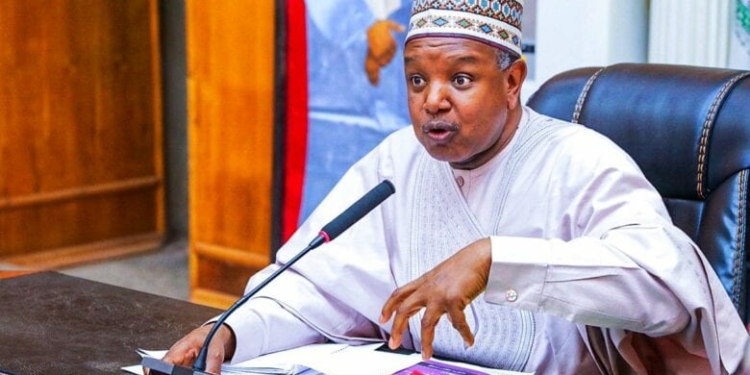- Minister Abubakar Atiku Bagudu urged Nigerians to focus on the substance of tax reform bills, avoiding regional and ethnic biases
- Bagudu emphasized the necessity of tax reform to address underinvestment in critical sectors, highlighting Nigeria’s need for $100 million annually
The Minister of Budget and Economic Planning, Abubakar Atiku Bagudu, has urged Nigerians to avoid regional or ethnic biases in discussions about the tax reform bills currently before the National Assembly.
Speaking at the ProjectTrust initiative’s closing event in Abuja, Bagudu emphasized that the bills, submitted by President Bola Tinubu, showcase the government’s dedication to democracy and constitutional governance.
He called on citizens to focus on the reforms’ substance rather than letting divisive sentiments shape the discourse.
“We are not debating the actual issues; instead, we highlight tribalism, regionalism, and other fault lines,” Bagudu remarked. “The question is simple: do we need tax reform? The answer is yes.”
He stressed that tax reform is essential for addressing underinvestment in critical sectors like education and social welfare. Bagudu explained that Nigeria needs at least $100 million annually to promote inclusive development and improve social interventions.
Drawing comparisons, the minister cited data from the Organization for European Economic Cooperation and Development (OECD).
He highlighted that countries like Singapore and Nordic nations invest $30,000 to $37,000 per pupil in primary education, while the United States allocates about half that amount, showcasing Nigeria’s significant shortfall.
The event, themed “Sub-National Governance in Nigeria,” was organized by Connected Development (CODE) with support from the MacArthur Foundation. It also marked the launch of CODE’s Five-Year Strategic Plan to guide future operations.
Hamzat Lawal, CODE’s Chief Executive, emphasized the importance of building trust in governance. He called for stronger accountability measures to boost public confidence in leadership.
The ProjectTrust initiative, implemented in six states—Kwara, Anambra, Bayelsa, Jigawa, Yobe, and Osun—focused on social interventions and community project monitoring. It highlighted the role of citizen engagement and transparency in ensuring effective governance.








Discussion about this post